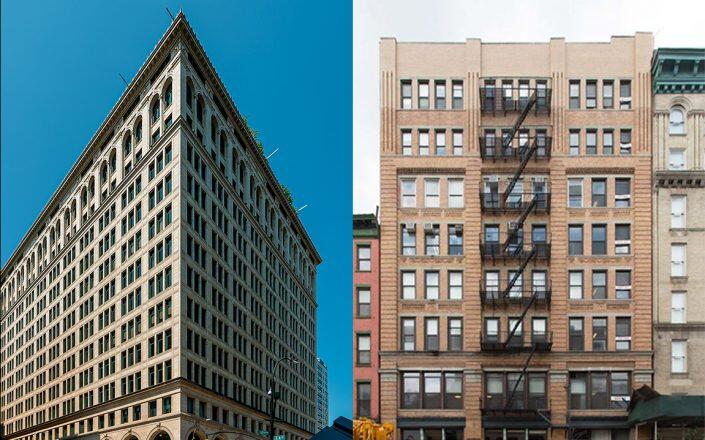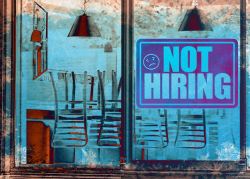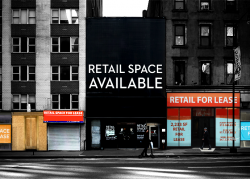Manhattan’s retail market is showing slow signs of recovery aided by a few major deals, according to a new report by CBRE.
Direct ground-floor availabilities across 16 of Manhattan’s shopping corridors decreased in the third quarter of this year, from 290 to 282 quarter-over-quarter. Though the figure is 11 percent higher than it was a year prior, the slight decrease marked the first decline in availability in the region since 2019.
Leasing activity, which includes new leases and renewals, also increased for the first time since 2019. Velocity rose roughly 4.4 percent from the prior quarter but remained 45.5 percent below the rate recorded the previous year.
The area with the highest leasing velocity was NoHo, with over 89,000 square feet transacted in just two deals. That’s thanks to Wegmans Food Market taking over K-Mart’s 89,000-square-foot Astor Place flagship store at Vornado’s 770 Broadway.

770 Broadway and 324 Lafayette Street (Wikimedia, LoopNet)
The other deal was Kyu Restaurants, a modern Asian fusion eatery based in Miami, which announced a 6,600 square-foot lease at 324 Lafayette Street.
Flatiron/Union Square scored the second-highest leasing velocity in the third quarter with over 52,000 square feet closed across six transactions.
Read more


However, average asking rent did not see much improvement. Rent in Manhattan’s retail corridors declined for the 16th consecutive quarter, falling to $605 per square foot. That’s a 1.6 percent decline from the second quarter and a 8.3 percent drop from the prior year.
The report comes as the city introduces the Key to NYC mandate, which requires customers to provide proof of vaccination to participate in activities, such as indoor dining. Simultaneously, the delta variant has posed yet another threat to businesses.
However, the city’s gradual return of tourists and office workers marches on.
The Times Square Alliance said the landmark over Labor Day Weekend saw as many as 255,000 visitors — the highest number since the pandemic began, but far less than pre-pandemic levels.
An average of 36 percent of the workforce in top U.S. cities returned to offices in the week of Oct. 4-8, according to data from Kastle Systems reported by the Wall Street Journal. The figure marked the second consecutive week of growth after an average of 35 percent of the workforce swiped in during the week ending Oct. 1. It’s also a decent jump from the week of Labor Day — an initial target return date for many companies — which saw an average of 31 percent clock in.
“The city’s economic fundamentals continue to strengthen with further improvement expected as more people return to pre-Covid routines,” Nicole LaRusso, CBRE senior director of research and analysis, said in a statement.
